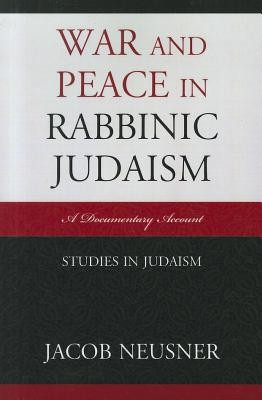
- We will send in 10–14 business days.
- Author: Jacob Neusner
- Publisher: University Press of America
- ISBN-10: 076185598X
- ISBN-13: 9780761855989
- Format: 15 x 22.6 x 2 cm, softcover
- Language: English
- SAVE -10% with code: EXTRA
Reviews
Description
This book surveys the treatment of war and peace in the canon of Rabbinic Judaism in late antiquity: to what does Judaism refer when it speaks of war and peace in the context of the Hebrew words "milhamah" (war) and "shalom" (peace)? But this study is not lexical. It is categorical. "War" represents a commanding, coherent category-formation, while "peace" covers a variety of circumstances and transactions. "War" is specifically a Halakhic category and "Peace" an Aggadic taxon. Do "war" and "peace" present us with a lexical or a categorical phenomenon? War forms a category-formation and peace is a substantive - a word bearing diffuse references. With what consequence? When we come across the word "war" without further data, we know the context and intent, but "peace" covers a mass of miscellaneous, free-standing facts and diverse implications.
EXTRA 10 % discount with code: EXTRA
The promotion ends in 8d.10:45:24
The discount code is valid when purchasing from 10 €. Discounts do not stack.
- Author: Jacob Neusner
- Publisher: University Press of America
- ISBN-10: 076185598X
- ISBN-13: 9780761855989
- Format: 15 x 22.6 x 2 cm, softcover
- Language: English English
This book surveys the treatment of war and peace in the canon of Rabbinic Judaism in late antiquity: to what does Judaism refer when it speaks of war and peace in the context of the Hebrew words "milhamah" (war) and "shalom" (peace)? But this study is not lexical. It is categorical. "War" represents a commanding, coherent category-formation, while "peace" covers a variety of circumstances and transactions. "War" is specifically a Halakhic category and "Peace" an Aggadic taxon. Do "war" and "peace" present us with a lexical or a categorical phenomenon? War forms a category-formation and peace is a substantive - a word bearing diffuse references. With what consequence? When we come across the word "war" without further data, we know the context and intent, but "peace" covers a mass of miscellaneous, free-standing facts and diverse implications.


Reviews